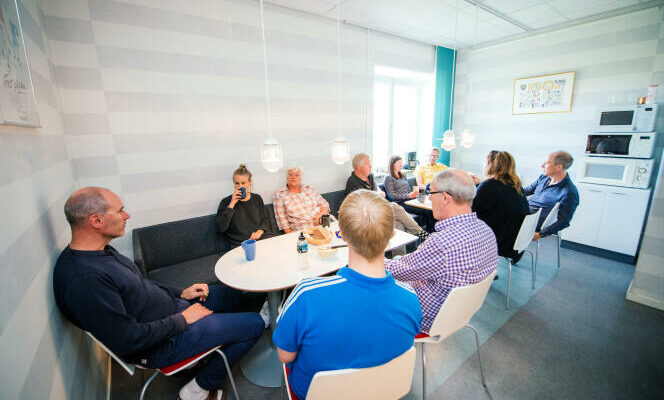Everywhere in Sweden, in the office as in factories, the break fika is sacrosanct. Generally, we stop working around 9:30 a.m., then 2:30 p.m., for a coffee break with colleagues. In some companies, these meetings are more spontaneous. But everyone ends up finding themselves in front of the coffee machine, with the ultimate fredagsfika : the Friday coffee break, the one where we linger longer, tasting pastries.
But here it is: since the beginning of the year, the fika finds himself in turmoil, after the publication of an article in the municipal workers’ newspaper Municipal arbetaren, on January 3, which reveals that, in certain local communities, coffee is now paid for. Worse, certain municipalities and regions would make differences between socio-professional categories. Thus, in the regions, 94% of civil servants are entitled to free coffee, compared to only 75% of caregivers.
In some municipalities, employees must fill out a questionnaire when they are hired: if they say they like coffee, their salary is automatically reduced by a few dozen crowns (a few euros) each month. The Stockholm region went even further: just before Christmas, health sector employees learned that they would no longer be entitled to the equally traditional fruit basket, which generally sits near the washing machine. coffee.
Painful restructuring
According to the newspaper Dagens Nyheter which revealed the information on January 11, the internal memo sent by the health department lists a list of products which are not judged “essential for the production of care” and will therefore no longer be supported. Alongside the basket of fruit is the fikabröd (literally “the bread to fika ”, which refers to the pastries accompanying coffee).
These penny-pinching savings demonstrate a disastrous economic situation for local authorities: in 2023, the twenty-one regions and a third of the 290 Swedish municipalities ended the year with finances in the red, according to the association of local authorities SKL. However, 2024 is expected to be even worse, with the deficit falling from 6 billion crowns to 31 billion (from 530 million to 2.75 billion euros). The cause: inflation and rising interest rates, but also an increase in needs, particularly in the health sector or the care of the elderly.
In September 2023, the conservative liberal government, supported by the far right, announced an additional 10 billion crowns to local authorities. But it will not be enough to avoid the painful restructuring announced in public services. Schools across Sweden are seeing their budgets squeezed, while the large Sahlgrenska hospital in Gothenburg, which expects to run a deficit of 1.7 billion crowns between 2023 and 2024, estimates it will have to lay off 2,000 of its 17,000 employees in the hope of returning to a balanced budget.
